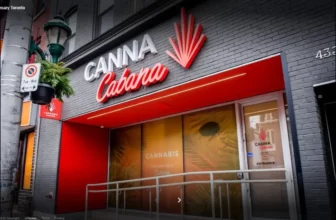In a historic move, King Mohammed VI of Morocco has extended clemency to thousands of farmers involved in the illegal cultivation of cannabis. This action aligns with Morocco’s broader strategy to reform its cannabis industry and establish itself as a key player in the global legal cannabis market. While traditionally known for its underground operations, the nation is steering towards a regulated landscape aimed at medical, pharmaceutical, and industrial applications. Let’s delve into the nuances of this transformative initiative.
The unprecedented royal pardon: details and implications
Earlier this year, King Mohammed VI granted pardons to over 4,800 individuals embroiled in cannabis-related offenses. The justice ministry specified that these individuals were either convicted, prosecuted, or wanted in conjunction with illegal cannabis activities. This remarkable act of grace is seen not only as a humanitarian gesture but also as a strategic maneuver to align with ongoing reforms in the country’s cannabis policies.
Legal backdrop and historical context
Morocco is recognized globally as the leading producer of cannabis, particularly from the northeastern Rif region, where cultivation has long been a tradition. In 2021, Morocco legalized the production and medical use of cannabis in certain rural provinces within this region. This shift towards legality marks a significant departure from decades where the crop was mainly associated with illicit trade.
Establishing regulation: ANRAC and its role
Establishing the National Agency for the Regulation of Cannabis Activities (ANRAC) underscores Morocco’s commitment to a legally compliant cannabis industry. ANRAC oversees every aspect of legal cannabis farming, from seed processing and importation to the exportation of finished products. With over 200 permits already issued, the agency is a cornerstone in ensuring transparent and lawful practices.
Support for local communities
For years, cannabis farming has provided livelihoods for tens of thousands of families in the Rif region. By regulating the industry, Morocco aims to offer these farmers a stable and legal source of income. This support extends beyond financial means, aiming to uplift entire communities by integrating them into a global supply chain that adheres to international standards.
Economic prospects and global positioning
With robust regulatory frameworks now in place, Morocco aspires to become a key supplier in the international cannabis market. The focus is on legal products intended for medical, pharmaceutical, and industrial use, diverging from past practices that revolved around illegal trafficking. As global demand for cannabis-based products continues to grow, Morocco’s strategic position looks promising.
Combating illegal trade
By legitimizing and regulating cannabis cultivation, Morocco aims to undercut the pervasive black market. Legal alternatives can potentially reduce illicit activities and channel economic benefits through proper taxation and oversight. This dual approach secures income for many rural families and strengthens law enforcement efforts against illegal trafficking.
Cultural and social impact
The decriminalization and regulation of cannabis represent profound cultural shifts in Moroccan society. It moves away from the stigma and criminalization associated with the plant, reframing it as a valuable agricultural commodity. This change paves the way for greater acceptance and integration of cannabis into mainstream sectors such as healthcare and industry.
Community empowerment
Empowering farmers through legal avenues of cultivation offers more than just economic growth. It fosters a sense of autonomy and dignity within communities that have long operated on the fringe of legality. Access to legitimate markets provides opportunities for advancements in agricultural techniques and business acumen, further enhancing communal resilience and prosperity.
Future considerations
Despite the optimistic outlook, transitioning from an illegal to a legal framework comes with its own set of challenges. Ensuring compliance across the board, maintaining product quality, and navigating international regulations are complex tasks. Furthermore, dealing with ingrained skepticism both locally and abroad will require persistent education and transparency efforts.
Sustainable development
As Morocco ventures into the global cannabis market, sustainability remains a priority. Nurturing the land and employing environmentally friendly practices will be essential. A balanced approach that weighs economic gains with ecological preservation can serve as a model for other nations looking to capitalize on their agricultural capabilities.
King Mohammed VI’s landmark decision to pardon thousands involved in illegal cannabis cultivation is more than an act of leniency; it’s a decisive step towards modernizing Morocco’s agricultural landscape. With a new legal framework in place, the kingdom stands ready to redefine its relationship with cannabis, offering promise not only to its citizens but also to the global market.





